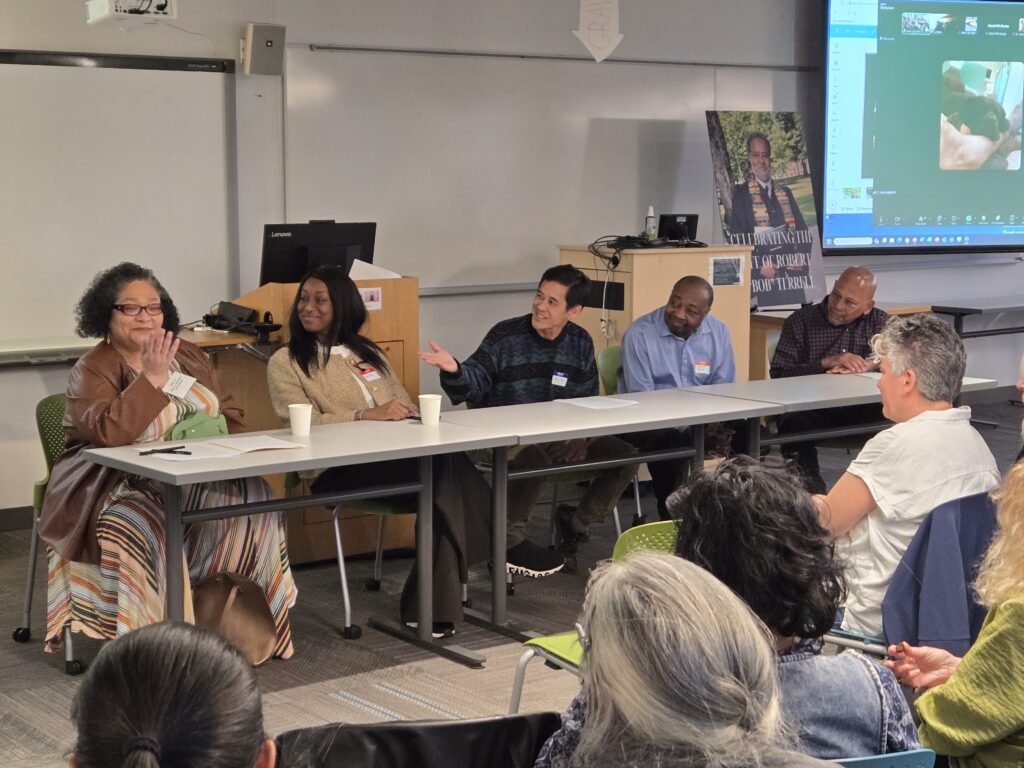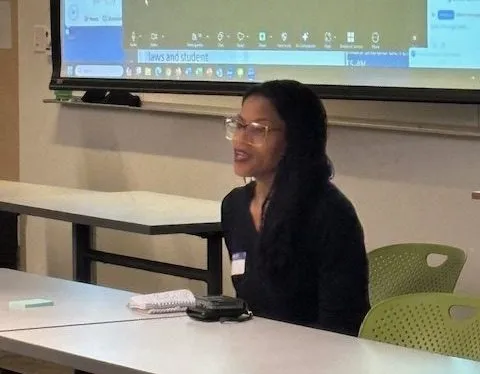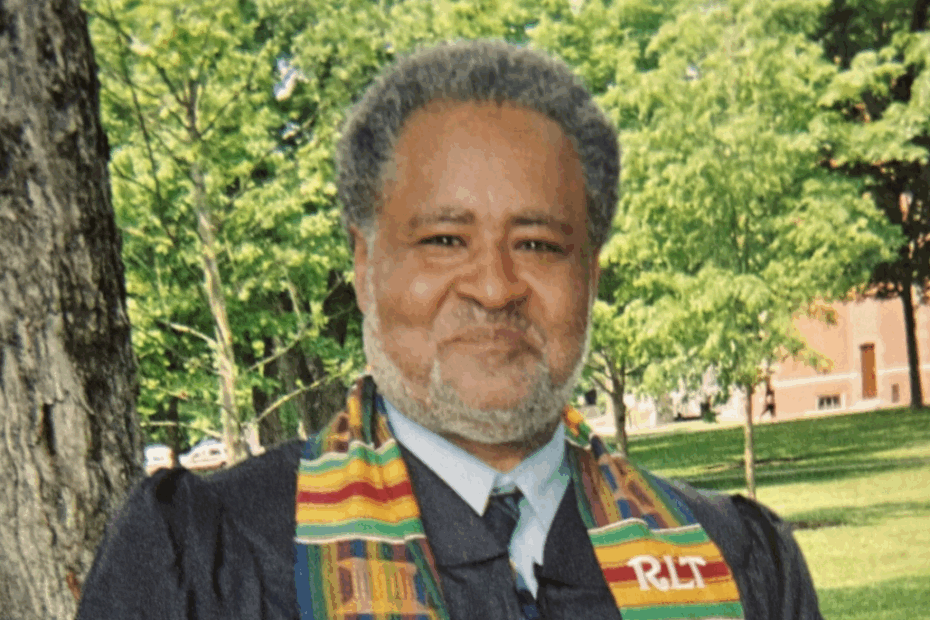Reposted in full from UEP Faculty member Penn Loh’s blog.

Robert “Bob” Terrell passed on January 29, 2025. Nearly 100 of his colleagues, friends, and students gathered on April 23 at Tufts University (and online) to celebrate and continue his legacy. As many noted, Bob would not have wanted an event to glorify him as an individual. Rather, this event allowed for people to connect and talk about how to continue the work to which he dedicated his life.
Born and raised in Boston’s South End, Bob graduated from Boston Latin School in 1970 and then went on to Bowdoin College. He came back to Boston, where he spent the first decade of his career in various positions doing tenant organizing and housing advocacy. Since the 1980s, Bob went on to play many roles and leadership in the movements for community control over development, transportation and environmental justice, fair housing, and community media. He was a key leader in organizations such as the Greater Roxbury Neighborhood Authority (GRNA), Washington Street Corridor Coalition (WSCC), and Fair Housing Center of Greater Boston. He was most recently the Executive Director of the City of Boston’s Office of Fair Housing and Equity. See more details about Bob’s life from the event slides, Boston Globe article, and this Bay State Banner article.

Speaking at the event were his close colleagues: Marvin Martin (Executive Director of Action for Equity), Zakiya Alake (most recently worked with Bob in City of Boston), Whitney Demetrius (Director of Fair Housing for Massachusetts), James Jennings (Tufts UEP Professor emeritus), Cynthia Hamilton (Professor emeritus Univ. of Rhode Island), and Lydia Edwards (Massachussets State Senator). A number of themes emerged:
- Bob’s dedication to the well-being of his community, to Roxbury, and to the African American community.
- His role as a teacher and mentor to so many, whether in a formal or informal role.
- Bob as a scholar-activist, who read more than almost anyone else they knew and who applied his knowledge to projects and policies.
- His steadfast belief in the assets and potential of communities to determine their own fates.
- A broad and intersectional view of how all the issues affecting his communities are interwoven.

My Tribute
~ Penn Loh (Read the original blog post here.)
I had the privilege to share some of my reflections of Bob at his celebration of life on February 13. Below is my own tribute to Bob based on these reflections.
I first met Bob Terrell in 1997 when he was running for city council and I was working with Alternatives for Community & Environment (ACE), an environmental justice organization in Roxbury. He was a mentor for me, helping me to understand the long history of environmental and transportation justice work in Boston. He ended up being ACE’s board chair for many of the years that I served as Exeutive Director. After I came to teach at Tufts Department of Urban and Environmental Policy and Planning (UEP) in 2009, he followed me to UEP as a mid-career Master of Public Policy student in 2010.
Bob was the epitome of a “practical visionary” that our department aspires to nurture and was one of our Neighborhood Fellows with full scholarship. Over the last 4 years, we were colleagues, as he took over teaching the MPP seminars from me. I will do my best to share some reflections around 3 themes: Bob as a Practical Visionary. Bob as an Educator & Mentor, and Bob as a Dignified Gentleman.
Practical Visionary
Bob loved big ideas and dreaming big. Some of us had the pleasure to hear him pontificate on his grand visions. He developed what he called the 21st Century Institute and a whole plan for economic democracy as the basis for building the Black community. These later became part of a book he co-authored with Cynthia Hamilton (titled Thinking Beyond Capitalism: An African American Alternative).
I remember when we were working on transportation and air quality issues in Roxbury’s Dudley Square (now named Nubian Square), trying to clean up the exhaust from diesel buses and trucks. Bob was concerned about the pollution, but he was also asking why not pedestrianize the entire area, like Downtown Crossing. He had a whole plan thought out for how that could work.
But he didn’t just float up in the clouds. He rolled up his sleeves and got to work on some of these ideas. That is why he was the ultimate practical visionary. He started as a youth organizer in high school and then a tenant organizer in the South End. He helped found the GRNA in the 80s. He led the decades-long fight for equal or better replacement service for the old elevated MBTA Orange Line with WSCC. See the 2012 documentary Equal or Better: The Story of the Silver Line for in depth interviews with Bob.
The most recent, and perhaps most impactful work he helped to drive was the Affirmatively Furthering Fair Housing (AFFH) Zoning, which was passed at the end of 2020 by Boston City Council. It made Boston the first city in the country to integrate fair housing requirements into its zoning code.
Educator-Mentor
The second theme is Bob as a gifted educator and mentor. At ACE, with our youth program, he came in to help them learn about past organizing efforts. He started by asking them “why are people poor” and then used that as a way to break down how political and economic systems are designed to produce inequality.
In the mid-2000s, as chair of the ACE board and mentor to me, Bob pushed for several years to have ACE buy a building in Nubian Square area. We had built a small rainy-day surplus fund, but I was too cautious to make an investment like that. If only we had listened to his advice more then.
Our students loved him as a professor at Tufts. Here are just a few of the words they shared about him as a teacher:
- friendly, wise perspective, challenges thinking
- gentle and kind instructor
- He makes learning fun and engaging
- He prioritizes equity in our discussions and creates space for everyone’s viewpoints and participation
Dignified Gentleman
Finally, Bob was through and through a gentleman and held himself with dignity and aplomb in every space I saw him in. It didn’t matter if it was at a rally calling out the Silver Line as the Silver Lie, at a board meeting, or in the classroom. Bob always carried himself with a quiet confidence and had a way where he could speak so effectively without talking too much. With Bob it was never about his own ego or accomplishments but about the ideas and principles and what difference that would make to his communities.
I will conclude by reading part of a paper he wrote for a class he took with me in 2012. I couldn’t have summed up his social change mission better than he did himself:
My view of social change is mostly based on the political and economic interests of the African-American community and that the transformation of the American capitalist system is a necessary prerequisite for our liberation. I believe that the problems confronted by the African-American community and American society as a whole, cannot be fully resolved without the following: a fundamental restructuring of the entire political and economic system, a recognition that permanent growth and expansion are environmentally unsustainable, a shift to renewable technologies that provide greater energy and resource efficiency, a real commitment to economic democracy and the redistribution of wealth, a serious reform of the political system to guarantee the decentralization of power and a greater emphasis on math and science literacy within the American public.
Bob, thank you for gracing us with you . Your life’s work and mission will continue to live through us. We will miss you dear brother. Rest in peace and power!

